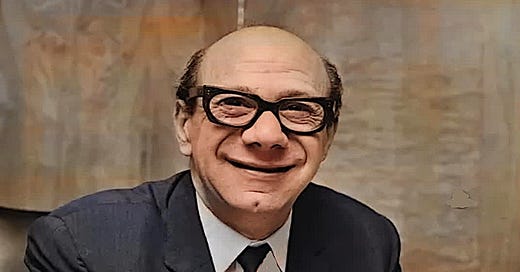DICK JAMES AND THE JOY OF PUBLISHING
EXCERPTED FROM MY BOOK 'BLACK VINYL WHITE POWDER', PUBLISHED IN THE UK BY EBIURY, AND IN THE USA BY UNBOUND
Once they’re written, songs have to be registered. Like people, they need birth certificates, otherwise they’ll be homeless children living outside the system, never able to earn any money or derive any benefits. This usually mean assigning them to a music publisher.
Naturally, songwriters like to feel they’ve been given a fair deal. But in 1995 Elton John decided he hadn’t. He took his publisher to court and sued for the return of his copyrights. His publisher was Dick James, who had also been The Beatles’ publisher.
In the 70s, when Elton signed the original contract, it was normal for publishers to take writer’s songs for the life of copyright. The contract Elton signed gave ownership of all the songs he wrote during the period of the contract to Dick James’s company. And although the contract would eventually end, all the songs Elton had written during that time would remain the company’s property until seventy years after Elton had died. And Elton didn’t want to wait that long.
In 1986 he went to court to get them back. He based his case on the fact that Dick James had operated the standard sixties scam of dividing the royalties in half, not just once but twice. Firstly, in the UK, where Elton and Dick James split the royalties 50/50; then again in America, where Dick James’s UK company and Dick James’s American company also split the royalties 50/50. That meant, in the USA Dick James got a total of 75% of each song and Elton only 25%. In the 1970s, this sort of set-up was quite normal. Publishing deals were extraordinarily one-sided.
Sting once said, ‘Any artist worth his salt has arrogance.’ He then revealed the degree of his own arrogance by suing Virgin Music for signing him to a publishing contract that he said was ‘onerous and unfair’. After a few days in court it was revealed that the publishing contract with which Virgin signed Sting, and which he claimed was unfair, was almost the same as the one he was using to sign new writers to his own publishing company.
Sting and Virgin settled out of court. In Elton’s case, Dick James won, but shortly after the court case he died of a heart attack.
Dick had once been a pop singer himself and was a jovial man much liked by everyone who dealt with him, including Elton when he’d first signed with him. And me too.
In the early seventies, Dick agreed to pay an advance to acquire the publishing rights of a singer I was managing, a big star in Spain called Junior, who’d just had a Spanish-language number one with his song Perdoname.
The day I took Junior to sign the agreement, Dick was sitting in a huge leather chair, looking well-fed and jovial. His lavishness of his office left no doubt as to his success yet his substantial wealth had come from little more than persuading young songwriters to sign their names at the bottom of difficult-to-understand publishing agreements. It was Dick’s charm that had done it, not any great talent at business, but on the walls were the results for all to see - gold records by the Beatles, from whom he’d made his first ten million or so, and of Elton, from whom he’d made the next ten. But he was still hoping for more.
As my Spanish songwriter was signing his contract, Dick turned to me, and in all seriousness said, ‘I think it’s about time I had another bit of luck.’
CLICK AND LEAVE YOUR EMAIL. IT’S FREE. RECEIVE A PIECE A WEEK





Artists getting fucked by businessmen. Artists need managers. The Beatles, the Smiths, Led Zeppelin, the Clash all found it difficult to create without a manager or a broken manager. And they are often too inexperienced to protect their best interests. Hopefully every artist has wised up and managers understand that the important thing is to help art be created for the world rather than to accumulate more money for themselves. Thank you Simon Napier-Bell!
Really montrous!